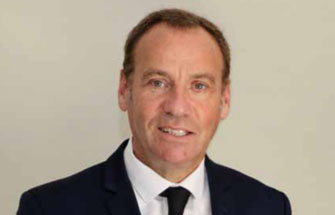Mr Michel Hunault, Honorary French Member of Parliament and Member of the Council of Europe has been a rapporteur for anti-money laundering and corruption legislation in France, transposing European Conventions and Directives. A lecturer at the Institut d'Études Politiques de Paris he coordinated the collective publication “Fighting corruption, money laundering, and tax fraud - ethical requirements in financial movements”. Since August 2019, he has been Director of the SICCFIN (Service d’Information et de Contrôle sur les Circuits Financiers - Financial Network Information Service) in Monaco. He has been a constant champion of the SICCFIN since the French parliamentary investigation commission of which he was Vice-President.
Can you describe your current activities in Monaco?
The SICCFIN is the national central authority responsible for collecting, analysing and disseminating information related to the fight against money laundering, terrorist financing and corruption. We are currently responsible for coordinating the National Evaluation of Risks (ENR2) in Monaco. This involves identifying, assessing and understanding potential or actual risks facing the country relating to money laundering and the financing of terrorism in coordination with the relevant authorities. This ENR will be an essential element in the upcoming evaluation of Monaco by the MONEYVAL (a committee of experts which assesses measures to prevent money laundering and the financing of terrorism, set up in 1997 within the Council of Europe) planned for 2021.
Furthermore, I was re-elected as coordinator of the French Financial Information Cells (FIC) within the EGMONT Group, an international organisation which now includes 165 FICs. The Group’s mission is to fight money laundering and the financing of terrorism.
What links do you have with the AMAF?
It is the SICCFIN’s responsibility to ensure the subjects of Monaco comply with anti-money laundering and combating the financing of terrorism procedures (AML-CFT), and banks are on the front line! We also process reports of suspicious activities.
I wanted to create an atmosphere of trust based on absolute confidentiality. This has translated into a noticeable increase in reports (+15% in 2019/2018) received from banks and asset management companies. We communicate regularly with the AMAF, and frequently organise work meetings with them.
As the Director of SICCFIN, you have been involved in transposing the fifth AML-CFT directive. Can you tell us about your experience?
All transpositions are a challenge! In this case, we need to reconcile the specificities of the Principality of Monaco with international obligations and requirements. These are in a constant state of flux, to take into account development in international financial crime: laundering the proceeds of corruption, tax evasion and fraud, etc.
What can the SICCFIN bring to the Principality of Monaco?
As Director, I see its role as following the requirements set out by HSH the Sovereign Prince: Monaco must be credible and irreproachable in preventing and fighting the scourge of international financial crime. Trust is what makes Monaco’s financial centre attractive.
How can the Principality of Monaco stand out to make itself even more appealing?
My contribution, which I have yet to deliver in Monaco, at the end of 2021, will be organising a world forum on good governance as a condition for maintaining Monaco’s appeal as a financial centre, by adapting to the new challenges of the global financial system in the light of regulation. This could lead to improved training and awareness of these new challenges. The Forum will publish these works and will be dedicated to building trust, and enhancing the appeal and reputation of the Principality of Monaco.






